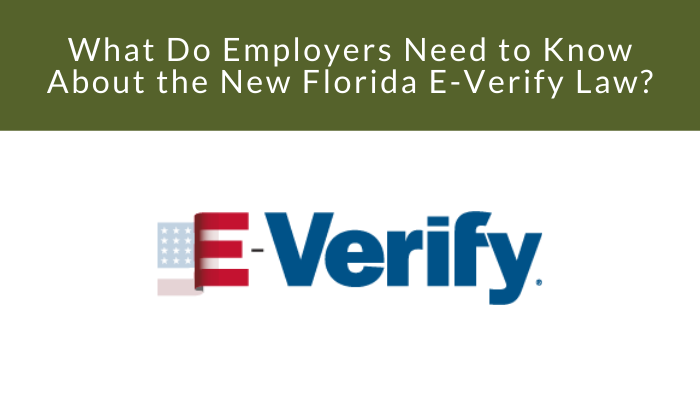Overview of E-Verify and Federal Requirements
E-Verify is a web-based system introduced in 1996 to compare employees’ Form I-9 data with records from the Department of Homeland Security (DHS), the Social Security Administration (SSA), and the Department of State (DOS). E-Verify is used to confirm the employment eligibility of new hires.
Under federal law, all employers are required to complete a Form I-9 Employment Eligibility Verification for each new employee to verify the identity and eligibility of that employee to work in the United States. The employers must keep the Form I-9 for the length of employment and at least one year from the date of dismissal (or three years after hire, whichever period is longer).
Under federal law, unless an employer uses E-Verify and is required to retain a copy of certain documents, photocopying the documents presented for Form I-9 Section 2 purposes is not required. However, employers may photocopy the document(s) presented by the new hire when completing the Form I-9 (this is generally considered good practice).
For most employers, federal participation in E-Verify has been voluntary. However, it is mandatory for all federal employees and all companies operating under federal contracts that include the Federal Acquisition Regulation (FAR) clause. Additionally, a minority of states require E-Verify for all employers.
E-Verify in Florida and the New Requirements
Since 2011, E-Verify has been required on all state projects in Florida. The new law expands the current requirement for all Florida public employers, as well as their private contractors and subcontractors and private employers.
The new requirements for employers vary depending on whether they are public or private, and whether they contract with the state or receive certain state incentives.
Effective January 1st, 2021, all Florida public employers — along with their private contractors and subcontractors — must use E-Verify to confirm the eligibility of all new hires. No public contract can be awarded without an E-Verify certificate.
Moreover, any contractor who hires a subcontractor must require an affidavit stating that they don’t employ, contract with, or subcontract with any unauthorized immigrants. This affidavit covers all new hires, not just those working on government contracts. The affidavit must be kept for the duration of the contract for all public projects.
Private employers are required to use E-Verify if they have a contract with a public employer or they seek taxpayer-funded incentives through the Department of Economic Opportunity (DEO).
For all other private employers in Florida, they have the option of either (a) using the E-Verify system for new hires; or (b) keeping copies of the supporting documents presented by employees for the Form I-9 process for three (3) years from the date of hire.
Consequences of Non-Compliance with the New Law
Non-compliance with the new law can lead to significant consequences, such as revocation of a company’s license to do business in Florida, contract termination without the option of a cause of action for breach of contract, and more. Florida agencies will also request proof of compliance with the new law and might not award a contract for non-compliance.
Thankfully, the legislation does afford employers a period to cure the violation and provide an affidavit of compliance.
Expect government scrutiny with employment verification compliance and records — at both the state and federal level — to continue under the new administration, and take the proper steps to audit and manage your immigration compliance with the assistance of a qualified immigration attorney.
